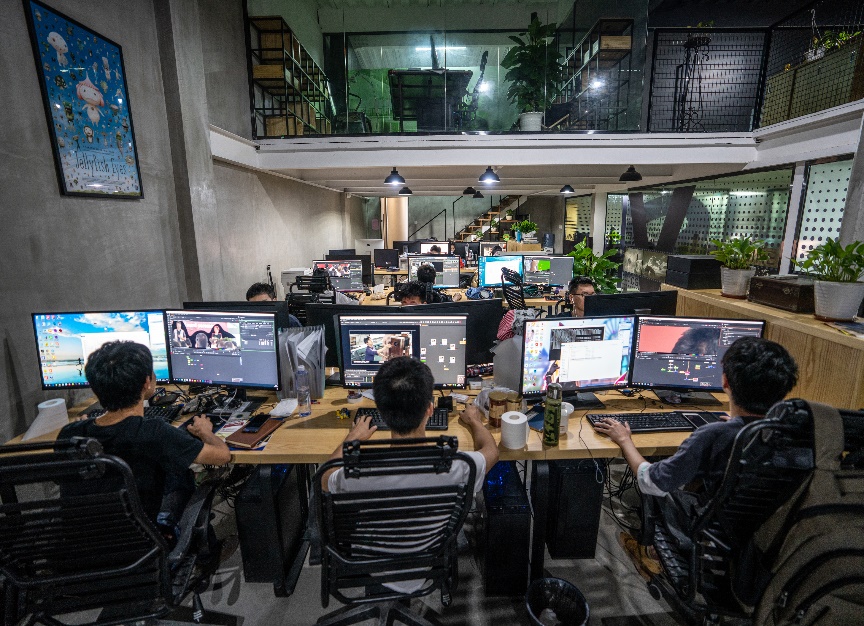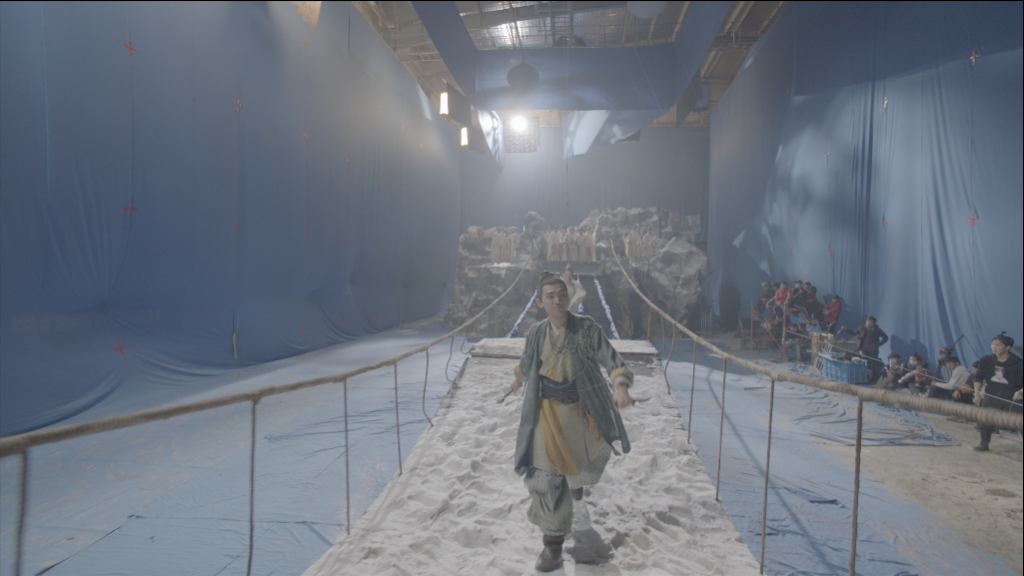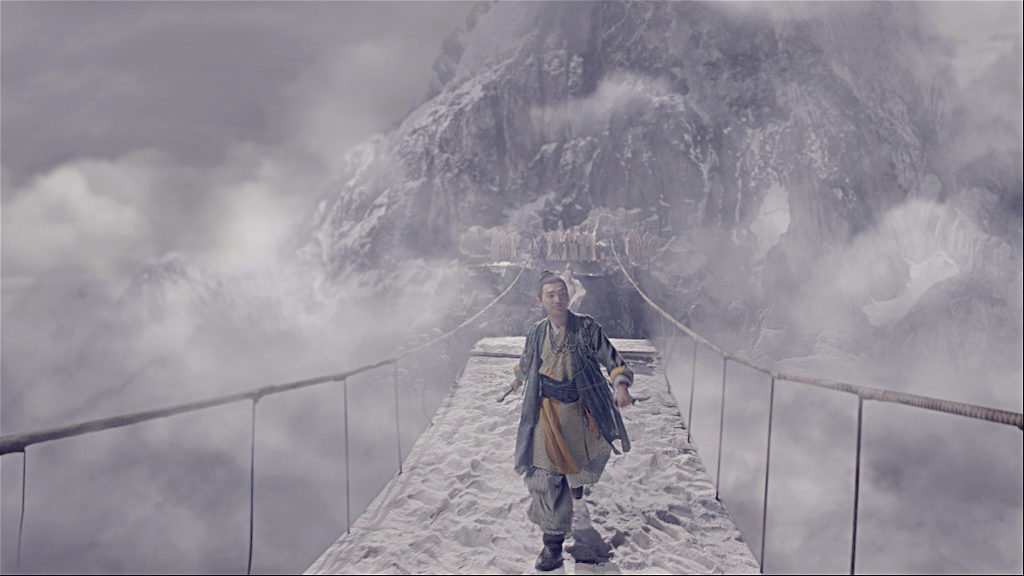I Have a Question – Locator
Shenzhen Locator Vision Technology Co., Ltd. is a full-process high-end commercial visual content service company with its headquarter based in Shenzhen, focusing on and serving the whole world. It has set up branches in Los Angeles and Kuala Lumpur. Its business covers visual concept design services for movies, TV series, high-end advertising, lens dynamic preview services, on-site visual effects supervision, and advanced professional post-production effects services.
Locator’s visual effect team has entered the field of film visual effects production since 2004. It is one of the earliest visual effects producers in China, aiming to establishing a high-end R&D department through the perfect integration of technology and art, and is committed to large-scale visual effects design solutions. Through the top-level technological innovation, the innovative film & television special effects production will support customers with the best film & television special effects production . Today, CGGE reporters interviewed the Locator, talking about the special effects of film & television.

CGGE: Can you briefly introduce the post-production of film & television? Is there a difference or commonality between post-production of film & television and that of animation? Can your post-production process meet the needs of these productions? Have you developed any internal process software or tools?
Locator: Film & television post-production refers to the production of special effects shots through 3D special effects and synthetic means for the finished film materials, clipping the lenses together, processing colors professionally, and voicing and making sound effects for the film to form a complete film.
The production process of cartoon post-production and film post-production has a common place and a few different links. For example, in the four sections of model, material, lighting, and rendering, the number of production staff will be relatively large, and the technology is used. The technical details and art styles are quite different from live-action films. The strength of Locator is 3D special effects and synthesis of live-action films. For example, we participated in the special effects production of the super IP Internet drama “Legend Of Fu Yao” and “Sha hai”, winning unanimous praise and making them a hit in the summer vacation. Speaking of cartoons, restricted by our team’s schedule, we couldn’t help the CG animated film “Monkey Magic”. However, as this film’s director is also a good friend of ours, we can cooperate on the lighting, rendering, special effects and synthesis modules to meet the requirements. But in a strict sense, the production processes of the two types of production teams are fundamentally different. It’s just that Locator are relatively equivalent to the concept of full-process production teams.
Locator has a specific production department monitoring the progress of each visual effects project, using professional process management software for project management. Besides, we have our own R&D department, constantly developing tools suitable for our own team to improve efficiency, such as introducing and deriving tools for materials between different 3D software, asset collecting, sorting and managing system, Omnimax projecting 3D simulation system and so on.


CGGE: Currently most of the films with high box office revenues are special effects movies. In addition to Hollywood blockbusters, South Korean films’ special effects are also eye-catching. Even many Hollywood and Chinese native films choose to do post-productions in South Korea. How do you view and deal with this powerful competitor? Compared with the post-production VFX making companies in South Korea, what are the advantages and disadvantages of those in our country? How can we make more Chinese special effects companies stand out in the future and get the favor of producers or directors worldwide?
Locator: Hollywood and domestic films choose South Korea in their post- productions mainly because their VFX project experience is more abundant than that of China. South Korea began to appoint producers to learn technologies in Hollywood in the 1990s, many of whom went back to China to develop. China started this a lot later. Besides, South Korean government has a lot of preferential policies for film & television special effects production companies (30% of the production auxiliary, without returning the funds). Take the movie“OPERATION RED SEA” for example. Supported by their government’s subsidies and tax reducing policies, South Korean companies require a few million less than Chinese special effects companies, so we lose competitiveness. Therefore, domestic special effects companies need to strengthen themselves in technology, managing system, organizational structure, operational experience and other aspects. Also, the government is expected to provide corresponding preferential policies for special effects companies, so that we may catch up with and even exceed them.
Our advantage is that domestic post-special effects industry have already been qualified to be a global film special effects center. The special effects industry services and training systems are also constantly improving. Besides, Chinese people’s capability of enduring hardships is also rare in the world, which leads to domestic VFX companies’ lower price quotations and shorter construction schedules than their Hollywood counterparts.
Our disadvantage is that, in many cases, the producers know little about the special effect, so they cannot control the quality or describe clearly their expected effects. In addition, lacking money is also a big problem. According to American Film Institute, the budget for a large-scale crew in 2007 was $16 million, while domestic films’ costs are 30-500 million yuan, with only a few high-costing productions exceeding 150 million yuan. What’s more, Hollywood pays great attention to special effect and it takes up 20%-50% of the budget. When James Cameron filmed “Avatar”, he spent $14 million on 3D technology effects. But for domestic movies, companies spend several million yuan on special effects only in “Big Productions”. The post-production only accounts for about 12%-25% of the total cost in film making.
The talents making film & television special effects need to have marvellous professional skills and high artistic sensibility. Therefore, it is imperative to establish a complete system of cultivating technical talents and high-quality employees who understand both technology and art. Countries like South Korea, the United States, Canada have professional teachers to conduct in-depth teaching while domestic colleges and universities lack professional teachers in special effects disciplines. Therefore, domestic universities should communicate with enterprises and make curriculum that suits the needs of the industry. In this way, students can apply what they have learned to their work and both companies and schools can achieve satisfactory results.
China should bring together the best talents of the industry, integrating creativity and technology, giving special effects artists ample space to express themselves. Companies should try developing new software, technologies and algorithms for a film. Long time as it takes, it make films of higher quality, with the new software and algorithms continuing to serve later projects. Only by cultivating a qualified team with comprehensive qualities can China seize the opportunity to become a global special effects center.


CGGE: How do you establish the brand of Locator? Can you share it with our readers?
Locator: Locator‘s visual effects team integrates production, education and research, with the production, training, R & D working together to realize their respective advantages, forming a strong integrated and advanced system that reflects the comprehensive advantages in its operating process. Guided by technology, we have established a comprehensive asset managing system and a networked production process to deploy global international special effects production strategy partners. We have also cooperated with a number of professional colleges to ensure that students are exposed to project production and management at school, so that they can accumulate practical experience of running projects, reserve professional talents for the company’s development, set up a high-end R & D department. We also set up a high-end technical research team that is committed to innovating top technology, innovating film & television special effects production. We have also applied for a number of invention patents and visual effects software copyright to provide technical solutions for the production team.
In the future, Locator will consider realizing the networked synchronous collaboration of film & television production and cloud database asset sharing, gradually developing it into AI VFX industrial production process, and working together with the visual effects industry to create the best film VFX industrial system.
Above is CGGE’s exclusive interview with Locator.
Reporter:Sophia
Translation: Turing

熱門頭條新聞
- Global Game Jam Partners with Games for Change for the First G4C University Student Challenge
- Qualisys: Streamlining Mocap Today, Exploring What’s Next
- XSOLLA AND UKIE ANNOUNCE PARTNERSHIP AT GDC 2025 TO EMPOWER GAME DEVELOPERS IN THE UNITED KINGDOM AND THROUGHOUT EMEA
- “One of the Best Platformers of 2025” Ruffy and the Riverside Announces June 26th Release Date on PC & Consoles!
- Overwatch star Matilda Smedius to host NG25 Spring!
- SAG-AFTRA National Board Meets via Videoconference
- Double Dragon Gaiden: Rise of the Dragons Free DLC Coming Now
- Take a look back at Latvian animation spotlight at CARTOON MOVIE!
